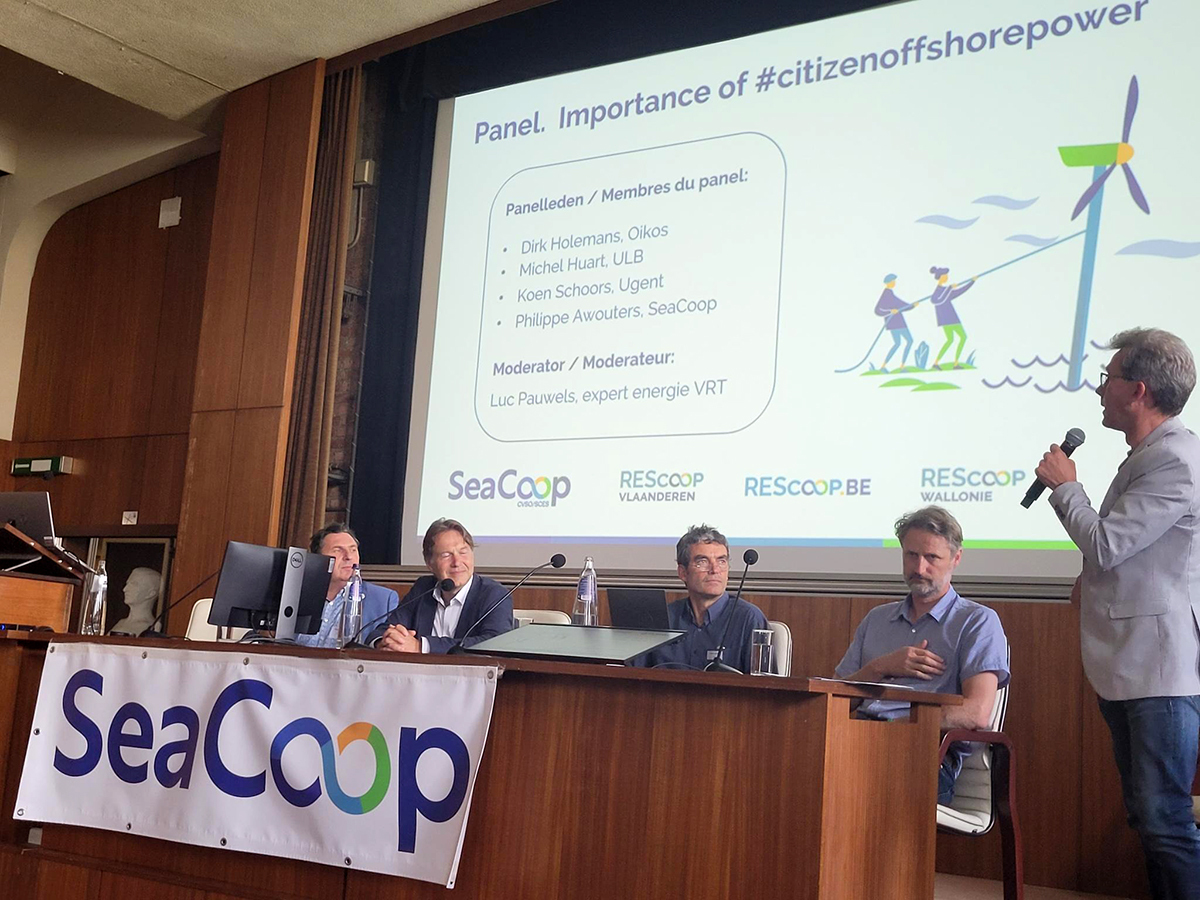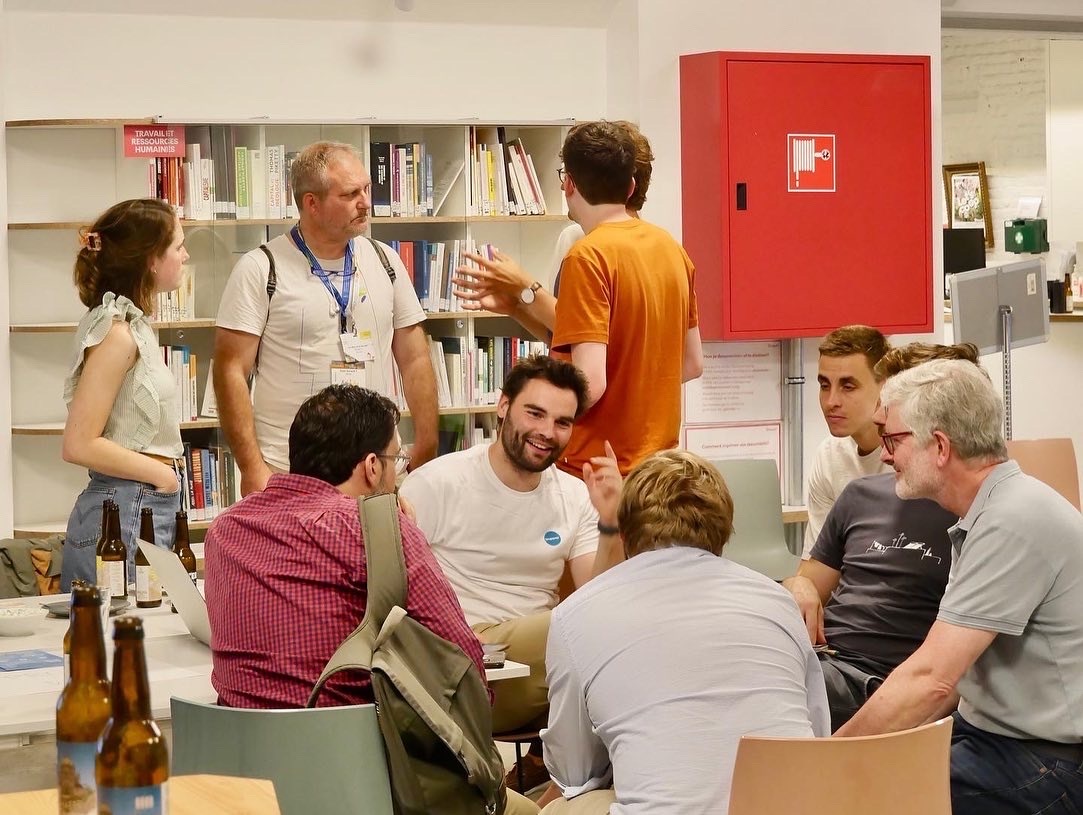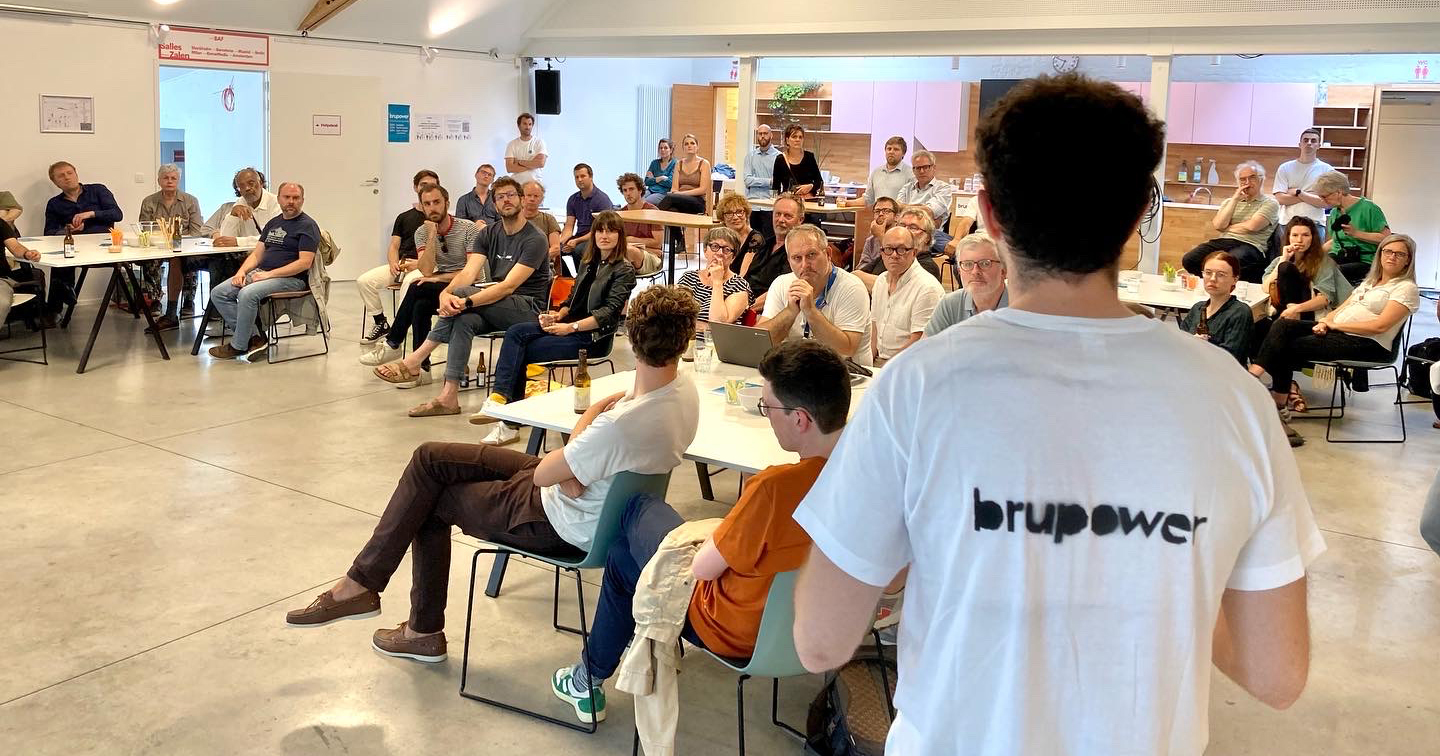Community energy is key to action on the climate crisis. It can empower people, boost local economies, and reinvigorate communities. Community-led initiatives play an important part in the transition towards a 100% renewable and just energy future. Success stories of community energy projects can be found all over Europe. At REScoop.eu we want to highlight these stories to further accelerate the movement towards a cleaner and democratic system.
In this hot summer month, we stay in Brussels to learn more about Brupower, the first Brussels-based citizen energy cooperative active in the capital of EU policy making.
A citizen energy project in Brussels
Brussels is the city where most of the EU’s policies about community energy are discussed and decided. However, policy makers did not have an inspiring example to look at in their own city. This situation changed a couple of months ago when Brupower, the first citizen energy cooperative based and active in Brussels, was launched.
Brupower aims to take back control of energy supply from large commercial energy companies in order to reduce the dependency on these market actors and the import of fossil fuels. The project was launched last May after months of work by a group of volunteers. Chloé Verlinden, an urban geographer working on an energy project of the non-profit organisation City Mine(d), is one of these volunteers and explains how they shaped the cooperative.
“There are many citizen energy cooperatives in Belgium, but there is almost nothing in Brussels. In 2020, I met a group of people who was interested in doing something around citizen energy in Brussels and we started working on a project together. We wanted to reach as many Brussels’ citizens as possible, so we decided to focus our activities on energy supply. In the end, everyone needs an energy provider. When the energy crisis hit in full force, we realised that if we want to be resilient, we need our own production too.”

Harvesting solar and wind energy
Brupower has not yet started its production and supply activities, but they want to do so very soon. Right now, they are looking for large public roofs in Brussels to build a PV installation – they plan to install 4,500 solar panels in the next three years. In autumn, they will launch their first campaign to attract new members and raise the necessary funds to finance the PV installations.
Brupower will also be involved in SeaCoop, a cooperative society established by Belgian energy cooperatives to give citizens the opportunity to participate in a new large offshore wind project planned in the North Sea. As we wrote in our success story about energy cooperatives participating in offshore wind projects, SeaCoop’s ambition is that the government will allow 20% of the offshore wind park to be directy owned by citizens. Although discussions with the Belgian government are still ongoing, Brupower has already committed to being part of this large-scale citizen energy project.
When it comes to energy supply, Brupower hopes to produce all the energy they will sell. If they need additional production to cover the demand, they may buy it from other energy cooperatives. Chloé emphasises that they will only sell “citizen and renewable energy”.

The community energy landscape in Brussels
When Brupower’s plans become operational, the cooperative will become the first energy community producing, sharing and supplying renewable energy on a regional scale in the Belgian capital. Chloé points out that there are several reasons to explain why this hasn’t happened before.
“In the Brussels region, it is not as easy as in Flanders and Wallonia to build large production facilities due to the lack of space and that is important for an energy cooperative. Moreover, there are also less obvious reasons. For example, the fact that Brussels is a bilingual region makes it harder for cooperatives. We have to do everything in two languages and that costs a lot of resources. From a legal point of view, Brussels, until recently, lacked some frameworks, for example on energy sharing, to help energy communities take their first steps.”

Engaging the Brussels population
In parallel to developing their production and supply plans, Brupower is working on growing their membership base. Currently, the core group consists of ten volunteers who work a few hours per week on the project and occasionally receive some support from a broader group of volunteers.
In the last months, they have organised informal public events where they share information about their project and where people can discuss or ask questions over a drink. These events, called “Brupéros”, have proven very useful in attracting new people to the project. Chloé notes that in their last Brupéro they managed to attract 25 new volunteers.
Chloé also identifies their biggest challenge in expanding the membership: increasing the diversity of the group.
“It is very important to democratise the energy sector and to diversify the faces and people who get involved in community energy projects. Now we have people who are already familiar with the energy sector, but we would like to attract people with all kind of professional and social backgrounds. Different profiles are needed, including more women! In the upcoming months we will continue to reach out to a more diverse audience because we would like to be as representative as possible of the Brussels population.”

A light-house example for Europe
The fact that Brupower is based in the same city as the European Commission may bring additional attention to the project and make it a lighthouse initiative whose benefits are felt by policy makers, as it happens with other Brussels-based projects in different fields.
Chloé hopes that in the next five years Brupower will demonstrate that community energy works in Brussels and that the energy transition in the Belgian capital can be led by citizens. “Now we only have energy providers that are not very sustainable, neither citizen-led; we hope to change this landscape little by little”, she concludes.

